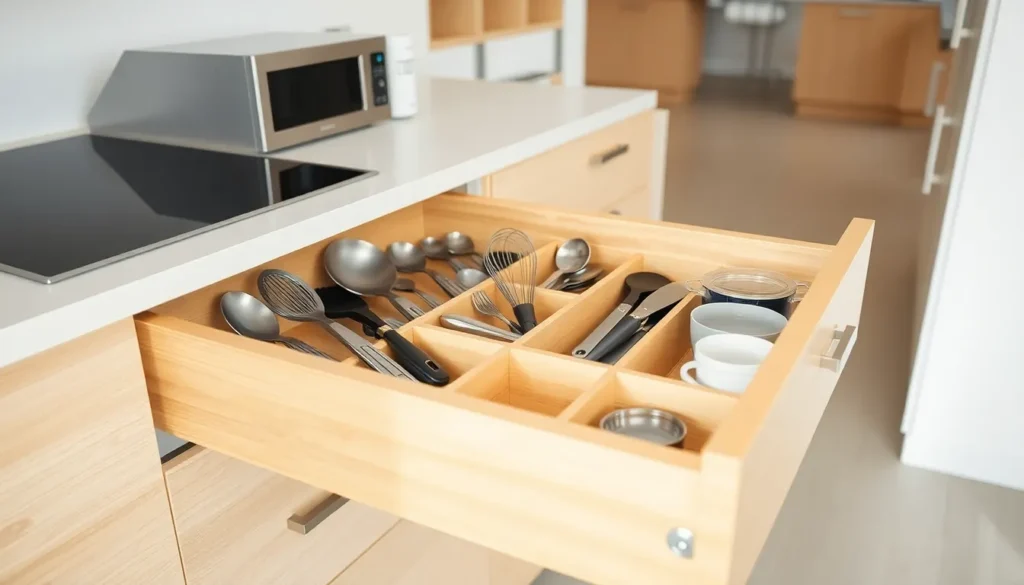In a world where smart fridges can order groceries and thermostats can learn your favorite temperature, keeping up with home tech can feel like trying to catch a greased pig at a county fair. But fear not! Home tech evaluations are here to save the day, ensuring that your gadgets aren’t just fancy paperweights.
Table of Contents
ToggleOverview of Home Tech Evaluations
Home tech evaluations serve as vital assessments of technology in a residence. These evaluations identify whether devices function as intended. Regular evaluations help homeowners avoid issues such as malfunctioning gadgets and underperformance.
Many options exist for performing evaluations, including professional services and DIY methods. Experts can provide detailed reports on devices like smart fridges, thermostats, and lighting systems. Homeowners can also conduct self-assessments based on manufacturers’ guidelines.
Evaluation criteria vary, focusing on performance, compatibility, and user experience. Performance reviews analyze how well devices manage tasks, such as energy efficiency and communication with other devices. Compatibility checks ensure seamless integration with existing systems. User experience highlights ease of use and accessibility features.
Proper documentation enhances the evaluation process. Homeowners benefit from keeping records of purchases, warranties, and previous assessments. This information supports informed decision-making when planning upgrades or replacements.
Investing time in regular home tech evaluations leads to a smarter, more efficient home environment. Many homeowners may find themselves relying heavily on technology for daily tasks, making these assessments crucial. Enhanced functionality promotes energy savings and overall satisfaction with technology at home.
Evaluations not only confirm device effectiveness but also provide insights into emerging technologies. Staying informed about advancements adds value and performance improvements to home technology systems. Prioritizing home tech evaluations can save time and resources while ensuring a modern, smart, and integrated living space.
Importance of Home Tech Evaluations
Home tech evaluations play a crucial role in maintaining modern living spaces. They ensure devices function properly, enhancing the overall home environment.
Benefits for Homeowners
Homeowners gain various advantages from conducting regular evaluations. Identifying malfunctioning devices prevents further issues and reduces repair costs. Enhanced performance improves daily routines, increasing convenience and efficiency. Evaluations also assist in understanding device compatibility, ensuring all technology works seamlessly together. Further, organized documentation, like warranties and purchase records, supports informed decisions about upgrades or replacements. Regular evaluations contribute to energy savings, promoting a greener lifestyle and reducing utility bills.
Staying Ahead of Technology Trends
Keeping up with technology trends is essential for homeowners. Evaluations provide insights into emerging advancements that can improve home systems. Staying informed allows homeowners to explore smart devices that integrate with current technologies. This proactive approach also fosters an understanding of the best practices for adopting new tools. Evaluations highlight which technologies suit individual needs, ensuring informed choices about future investments. Embracing trends leads to a smarter, more efficient home that aligns with modern expectations.
Key Evaluation Criteria
Evaluating home tech involves several crucial criteria that ensure devices work effectively in everyday life. Specific considerations include performance metrics and usability factors.
Performance Metrics
Evaluators should focus on speed, accuracy, and reliability when assessing performance. Speed refers to how quickly a device responds to commands, impacting user satisfaction. Accuracy evaluates how well a device completes tasks or provides information, which directly affects its perceived value. Reliability examines the consistency of performance over time, ensuring that the device operates without frequent malfunctions. Data tracking offers insights into energy consumption, which is essential for monitoring efficiency. Regularly checking these performance metrics helps homeowners maintain and enhance their tech systems.
Usability Factors
Usability encompasses factors like interface design, accessibility, and support resources. Interface design refers to the ease with which users navigate and interact with devices. A well-designed interface fosters intuitive use and minimizes frustration. Accessibility ensures that all users can operate devices effectively, regardless of technological proficiency or physical limitations. Support resources, such as online tutorials or customer service, enhance the user experience by providing assistance when needed. Evaluating these usability factors enables owners to select devices that integrate seamlessly into their daily lives.
Popular Home Tech Categories
Evaluating home technology encompasses several categories that reduce clutter and enhance comfort. Understanding these categories helps homeowners make informed choices about their tech investments.
Smart Lighting Systems
Smart lighting systems offer customizable brightness and color options. Homeowners can control these systems remotely or through voice commands. Energy efficiency stands out, leading to lower utility bills over time. Integration with scheduling features allows users to automate lighting based on daily routines. Furthermore, some systems can adapt to external conditions, providing optimal illumination and improving overall ambiance.
Home Security Solutions
Home security solutions include cameras, alarms, and motion sensors. These systems enhance safety by providing real-time monitoring of properties. Advanced features such as smart locks allow homeowners to grant access remotely. Alerts notify users of unusual activity, ensuring peace of mind while away from home. Notably, many security systems integrate seamlessly with other smart home devices, creating a comprehensive safety network.
Smart Thermostats
Smart thermostats optimize heating and cooling within homes. They learn user preferences, adjusting temperatures automatically for comfort and efficiency. Remote access enables homeowners to monitor and manage settings from anywhere. Energy usage reports help identify savings opportunities, promoting eco-friendly practices. Additionally, compatibility with various HVAC systems simplifies upgrades and installations.
Home Automation Hubs
Home automation hubs serve as central control points for smart devices. They facilitate seamless communication among devices, simplifying the user experience. Compatibility with major brands ensures homeowners can connect diverse technologies. Custom routines enhance convenience by automating daily tasks, such as adjusting lights and temperature simultaneously. Advanced security features provide additional layers of protection, aligning with users’ needs for safety and efficiency.
Common Challenges in Evaluations
Evaluating home tech often presents challenges that homeowners face as technology evolves. Understanding these challenges is crucial for effective assessments.
Keeping Up with Rapid Advancements
Rapid advancements in technology can overwhelm homeowners. New devices and features emerge frequently, making it difficult to stay informed. Homeowners may struggle to determine which technologies meet their needs. Changes in compatibility among devices further complicate evaluations. Keeping track of the latest trends helps maintain an effective home environment. A proactive approach supports informed decisions when selecting upgrades or replacements. Regularly assessing current systems ensures alignment with industry standards.
User Experience Variability
User experience varies significantly across devices and brands. Different systems might offer distinct interface designs that can affect usability. Some devices provide user-friendly controls, while others present challenges for less tech-savvy individuals. Variability in performance metrics, such as speed and reliability, can impact daily routines. Homeowners should prioritize evaluations that account for these differences. Feedback from users aids in identifying which technologies perform best for specific tasks. Tailoring devices to individual preferences ensures a smoother integration into daily life.
Regular home tech evaluations are essential for maintaining a functional and efficient living space. By assessing devices based on performance and usability, homeowners can prevent costly repairs and enhance their daily routines. Staying informed about technology trends allows for smarter investments and ensures that home systems remain up-to-date.
With the right evaluations, homeowners can identify the best devices that suit their needs while promoting energy savings and a greener lifestyle. Emphasizing documentation and user feedback further supports informed decision-making. Prioritizing these evaluations ultimately leads to a more satisfying and effective home environment, making technology work seamlessly for every household.













